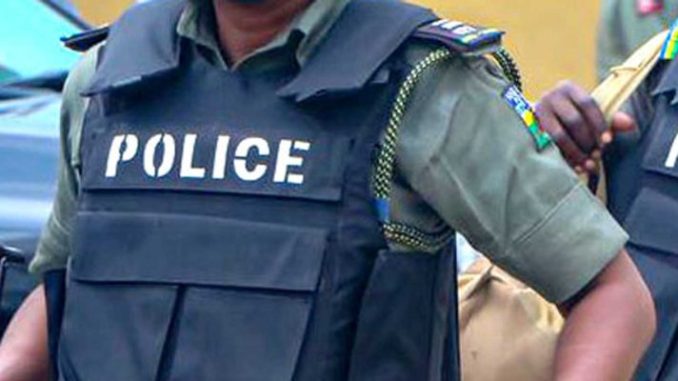
Recently, President Muhammadu Buhari conferred the prestigious 2022 Public Service Integrity Award to Superintendent Daniel Itse Amah, the Divisional Police Officer (DPO) in charge of Nasarawa Division, Kano, for rejecting a $200,000 bribe from robbers. Amah was bestowed with the honour at the 4th edition of the annual National Anti-Corruption Summit organised by the Independent Corrupt Practices and Other Related Offences Commission (ICPC). The award was based on the recommendation of the Chairman of the commission, Prof. Bolaji Owasanoye.
According to the ICPC boss, on April 24, 2022, a matter was reported to him that a suspect, Ali Zaki, convinced Bureau de Change operators that he had $750,000 which he could sell at the rate of N430 to fetch him the equivalent of N322,500,000. He said that after a bank staff confirmed the availability of the money at the bank to the victim, the transaction took place. However, the suspect arranged with armed robbers to track and rob the victim while the money was in transit.
The matter was promptly reported to the DPO who ordered immediate investigation into the matter, leading to the arrest of the principal suspect, Ali Zaki. To extricate himself from the case, he offered the DPO the mouth-watering bribe through a bank staff. The inducement was rejected. The bank staff was arrested and this led to the arrest of Ali Zaki. The bribe sum was recovered and registered as an exhibit.
Amah’s show of honesty was a rare occurrence in a system that is widely regarded as being irredeemably corrupt. As recently as 2018,
it took a survey by the British Broadcasting Corporation (BBC) to reveal that the system could boast of an honest officer within the Police Force. The cop who made the Force proud was Julius Adedeji. He was said to have never taken bribes in his career so far despite the temptations to do so because, according to him, it was needless for him. It was for this rare feat that the BBC decided to celebrate him as Nigeria’s “most dedicated police officer”.
The saint cop told the BBC in an interview that he was surprised to be nominated for the award because he did not know he was being watched.
He said: “I thank God that it’s recognised and I feel like putting in my best more and more. A copy of the letter (from the BBC) was delivered to my office for my information. When I read through it, I was wondering, could it be true? I read through the letter and I saw that it said, they wanted an institution which they can name and shame those that are not doing well and encourage the people that are doing well within the Nigeria Police Force. I felt so great.”
When asked if he had ever been offered money in the form of bribe, he said: “Absolutely. And even today, a person offered to give me some money and I said ‘no, no, no, no. Why would you do that? I’m just doing my work’.”
Recall that a 2017 survey by the Nigerian Bureau of Statistics (NBS) had identified officers of the Police Force as among the most corrupt public officials in the country, especially in bribery.
Credible as the BBC recognition might look, most Nigerians still found it very difficult to admit that an honest cop could be found within the rank and file of the police force in view of the huge shame that the average policeman has heaped on the system over the years. To most Nigerians, the other name for the police is corruption. But DPO Amah’s honest deed could further help to win more fans for members of the Force.
Many factors have been adduced for this state of affairs in the system. Notable among them are frustration, poor pay, lack of motivation and sheer greed.
Some policemen have confessed that they extorted money from civilians in order to augment their poor salaries. To the average Nigerian, the policeman epitomises brutality, corruption and dishonesty… a foe rather than a friend they profess to be. Unhappy with their jobs because of poor pay, many policemen are only too willing to compromise their ethics. And sometimes, they vent their frustrations on the society, turning back to prey on those they were meant to protect.
The force is the citizens’ first-line of security. The federal government needs to reinvigorate it to meet the challenges of modern policing. No society can afford to treat its police force with levity. A government that does that is guilty of complicity, as evidenced by the recent strike threats by some policemen over salary delay and non-payment of their allowances.
Blueprint congratulates SP Amah on his well-deserved accolade. He too represents the police we all dream of. He has also proved that even among sinners, a saint could still be found. Their other colleagues should strive to emulate the sterling examples set by Adedeji and Amah.
